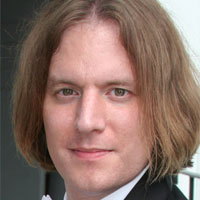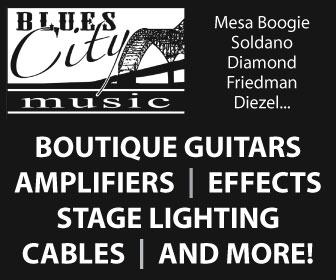Jason Shain
Stories, Benefits and New York Country
The title of Jason Shain's debut album, "Here I Am", serves as both a challenge and as words of comfort. For those who have been raised on a steady diet of over-produced and under-inspired music, the challenge lies in discovering a straight-ahead sound and a throw-back to a musical legacy where even songs about girls, being young and breaking-up somehow bore a greater significance. At the same time, he serves to let those who have been looking for meaning in their music that he might just be the one to bring it to them.
The nine tracks on "Here I Am "showcase Shain's lyrical and musical chops and a style, which he calls New York Country, familiar to those who have seen his live shows; dramatic, passionate and intimate. He creates this mood without special effects or light shows; just a guitar, a harmonica and stories that define and redefine their relationships from one verse to the next.
Shain has already shared bills with well-known acts such as Southside Johnny, Huey Lewis and Joan Osborne, and has performed a successful series of shows in the United Kingdom. He is currently preparing for two high-profile benefit shows in November; the Third Annual Light of Day Concert, and World Hunger Year's Hungerthon. He spent some time answering questions for Chorus and Verse about the new album, his travels thus far and where he's heading in the future.
Start off with a little bit about yourself. Where were you born, and at what age did you begin to discover music? When and where did you get your first guitar, and when did you decide to devote your life to being a touring singer/songwriter?
I never got the opportunity to discover music, it was sort of forced down my throat, or into my ears I guess, at a very early age. My dad's a music nut. But, it turns out, I really love nuts.
Aside from being born at a hospital in Brooklyn, I lived in Bellmore, Long Island from birth until I was 18. Went to college at SUNY Albany. Rented an apartment in NYC when I returned, where I've lived since.
At age 15, I got my first guitar. I think I may have been ripped off, so I'd rather not advertise the store name. I still have the guitar. It's the only one other people are allowed to 'play' when they come over. After all, it's the only one I don't use anymore. When in grade school, I already thought I knew this is what I wanted to do with myself, but all the other kids wanted to be astronauts and bumble bees. I knew they'd never achieve their goals, so I waited until I got a bit older to follow through with my own brilliant ideas.
Earlier this year, you made a successful tour of England, where you've actually traveled to several times. Can you talk about some of the venues that you played there and what the crowds are like?
Venues ranged from pubs, to ... well, how do I explain? There are really only pubs in London's surrounding areas. The same way all of NY State is not Manhattan, all of England is not London. The 'burbs I visited were all quaint towns without many music venues. There were a lot of pubs though; some local musicians who had heard some of the music would put the best of their gear in order and we'd have a 'venue'. Other times we'd just go to someone's house and do a living room show with no amplification.
And then, of course, there were the venues, which are pretty comparable to the ones we have in NY and NJ. Bar in the back or the side of the room, stage, floor, lights ... the usual. The audience was a bit different. If I do a show in a bar in the States where there are people who never heard of me in the audience, I have to earn their attention. They don't just show up, fold their arms and listen. If I play two songs and suck, I'll never grab them. If I go out and find I'm on fire that night, usually by the last song they're quiet enough to catch the lyrics.
It was kind of turned around in the UK. People gave you a shot right away. They came in listening. They wanted to be entertained. Maybe it's the drinking thing, I think a lot of people in the States go to a place with live music to have something to do while they drink. I think in the UK they just like to have something to drink while they do things.
Do you feel that being a songwriter whose lyrics and themes are such an important part of the experience, it's more difficult for your message to translate in other countries?
Not at all. If I was singing about baseball, maybe. But, I don't think my stories are hard to relate to.
Any memories of the first time you traveled overseas to perform? How did the first gig outside of the United States come about? Most performers have a difficult time just building an audience in their hometown. How have you managed to build a reputation across an ocean?
I got the better part of the deal in a gig swap. I invited Joe D'Urso to play four songs at a songwriters circle I put together. That night he asked me to join him as support for four shows in the UK. That was the first time I went. The crowd gave a great response, and I made some friends who totally got what I do. They've been pushing my tunes over there ever since and have even put together a few shows for me.
At a certain point you have to decide to take your music elsewhere. Even the biggest of cities gets small when you're there for a while. You run out of new rooms to perform in, so you've gotta find another place to go. For me, some of those places happen to be in England, but I don't think it would be different if it were Cincinnati. When you go to a new place and you say you're from another part of the map, people sometimes take interest and want to go see you. If someone brought the Space Needle from Seattle to NY, I'd want to go check it out; but I've only been to the Empire State Building once.
Was the material on your new CD, "Here I Am", written recently for the album, or are they songs that you've been performing for a while? How long does it generally take for you for evolve a song from the initial idea to performing it on stage?
Most were written in the six-month period before recording. I think one was written way before that and one or two while I was recording.
From the idea to the stage is hard to say. From finished song to stage, almost immediately; if I like it. I have to be honest, this question is physically hurting my brain. I'm gonna move on, and if I can think of a good answer, I'll get back to trying to think of the initial song ideas. Ouch!
Continue with your songwriting a little bit. When and where do you write? Do you find yourself filling up notebooks with disjointed ideas that become songs later, or do you take a more linear approach to working with an idea until it becomes a finished work?
Occasionally something will just crash in at random. Usually that happens when I'm walking. My old cell phone had a feature where you can record voice notes. I'm probably the only person who used it. You hold a button and you can record what you're saying, and the phone holds up to five minutes. That phone just broke, so it's back to the mini-pad. Most of the time I sit on the edge of my bed and start writing. But occasionally something lands without warning and I have to get it down so I don't forget it. I find that the best ones are finished in a day are two. If it takes much longer than that, they are usually trashed.
As for going back through the notebook to see the jumbled ideas, that usually brings out a great laugh. Sometimes I'll find a good line or two, but anything more is reaching. That's why I never really understand when people release albums of songs that never made it to an album. There are exceptions, but you can mostly tell why the songs weren't released in the first place.
Are all of the songs on "Here I Am" standards in your usual set? How long do you usually perform when given the opportunity? Are there any cover songs you like to perform?
I have probably three from the album that are gimmes. I usually go on stage for 45 minutes to one hour. A lot of times there are multiple sets.
I have a bunch of cover songs I like, but usually I play them two or three times and then forget them. I try and pick covers that are lighthearted, and loosen the show a little bit.
Where and how was the album recorded? Your stage shows are straightforward affairs, no light shows or fancy effects. Was your recording process similar? Are there any plans in the works to do a follow-up CD, or will you continue supporting this disc?
Hells yes, it was. There were definitely no fancy effects during recording. An old buddy of mine is a great recording engineer/producer and I knew he was renting space from a jingle studio. I tracked him down through someone else, and we hooked up. The studio was in Chelsea in NYC, and I'd have to go in when the jingle biz was done for the day. Usually that was at around 9:30pm. I'm anal retentive, so I'd get there at 8:30, sit around until 10 and we'd work until about three or four in the morning. We did that for four or five days a week for about five weeks. Good thing I was already a coffee addict.
I never knew what a $3,000 mic can do until I used one. I used to think the technical aspect was unimportant, but it's as important as the sound of your guitar. The mics became instruments, too. We used different placements to get some different sounds. We did three mics on guitar and one on vocals. When you listen to "Love Is Blind" there are parts where it sounds like three guitars. Surprise, Mom, only one - fooled you!
I'm gonna be pushing "Here I Am" for a while, but I'm always writing new songs, and will plan a follow-up while I continue to support the disc. No hands!
What's the primary guitar that you use on stage these days? Do you travel with just one instrument, or several? Any tricks for keeping a crowd from getting bored if you need to change a string in the middle of a set?
My Guild. I love my Guild. If I were in third grade, I'd be hearing, 'so why don't you marry it' quite often. I bring a second guitar, a Takamine, as a back-up in case I do break a string. But, if I break a string on both it's just me on stage so I have to tell a story. Usually that works well. I think it would be fun to do some beat box rap for the crowd to keep them from getting bored. Too bad I suck at it.
Speaking of your live shows, you're scheduled to be a part of the Third Annual Light of Day show at the Tradewinds. How were you invited to participate in the event, and where do you see your role as a musician in playing for cause-related events such as this one?
I've met Bob Benjamin, who is an artist manager with Parkinson's and puts together this event, many times in the past. I attended the last two shows and this year I called him to ask if I could be a part of it.
I think playing benefits and fund-raisers are an obligation that I'm happy to fulfill. I depend on the general public to come out and see my shows. One way to say thanks is to use the music to give back to parts of different communities.
Late November, you'll be playing a part at the World Hunger Year (WHY) event at Connolly's in Manhattan. Can you talk a little bit about WHY's mission in fighting hunger and poverty, and having the opportunity to work with Joe D'Urso?
Every morning I pick up a newspaper with my egg whites. No wait, I eat my egg whites and pick the paper up with my hands. Sorry, got confused. There is always bad news to read about. Families that lost fathers or mothers in accidents, people watching their homes go on fire. Usually the article runs and the local papers give some follow-ups later in the week, but then their stories are gone. But the people are still out there somewhere. Some unable to recover without some help to replace what was lost. There are people who are born without a family to provide for them and are basically lost and have no idea what they are looking for. From what I know, WHY helps them figure it out, and works with them until they regain their esteem and self worth. I think it's important to recognize the fact there are people who are less fortunate than some of us. If not because you feel for them, at least to show you appreciate what you have for yourself.
If I can go onstage to play music to help raise money for an organization that will help these people, I'm happy and honored to do it.
As for Joe D'Urso, I mentioned that we knew each other prior to this event. Personally, I'm sorry I ever got involved with that clown. (Laughs.) Just kidding! Nothing like a joke directed at one person out of the billions reading it to break up the monotony, eh? [Publisher's Note: Billions? Thanks, Jason.] He's a great guy, and it's rare that another musician will invite me to share part of their own success, and Joe has done it on more than one occasion. One of these days I'll figure out a good way to repay him.
Where do you see your career progressing over the next few months? Any goals for 2003 that you're working on, and specific "next steps" in your career that you hope to accomplish.
I'll just keep doing what I'm doing to build awareness about my music. There's a street team in the works. Cut to commercial. "Hi, I'm Jason Shain. If anyone is interested in signing up for my street team to help promote shows and learn about the exciting world of music, please email my manager, Alex D'Amico, at [email protected]."
And we're back in 5, 4, 3 ...
Things to shoot for are more ads on public and college radio shows, and to keep playing in as many new places as possible. I'll have my second album finished by the end of '03. I have a pretty good plan in my head. If anyone's really interested, the best thing to do would be to sign up to receive newsletters by going to the website at www.cdstreet.com/artists/jasonshain and clicking the "Contact Artist" link to request to receive news. That way you can stay informed on what's happening and what's in the works, and know when I'll be playing live in your area.

Matt Mrowicki founded Chorus and Verse in 2001. He is a rock star designer and technologist, Internet professional, content creator, and entrepreneur specializing in web development, IT consulting, branding, social media and online marketing. www.imprtech.com









